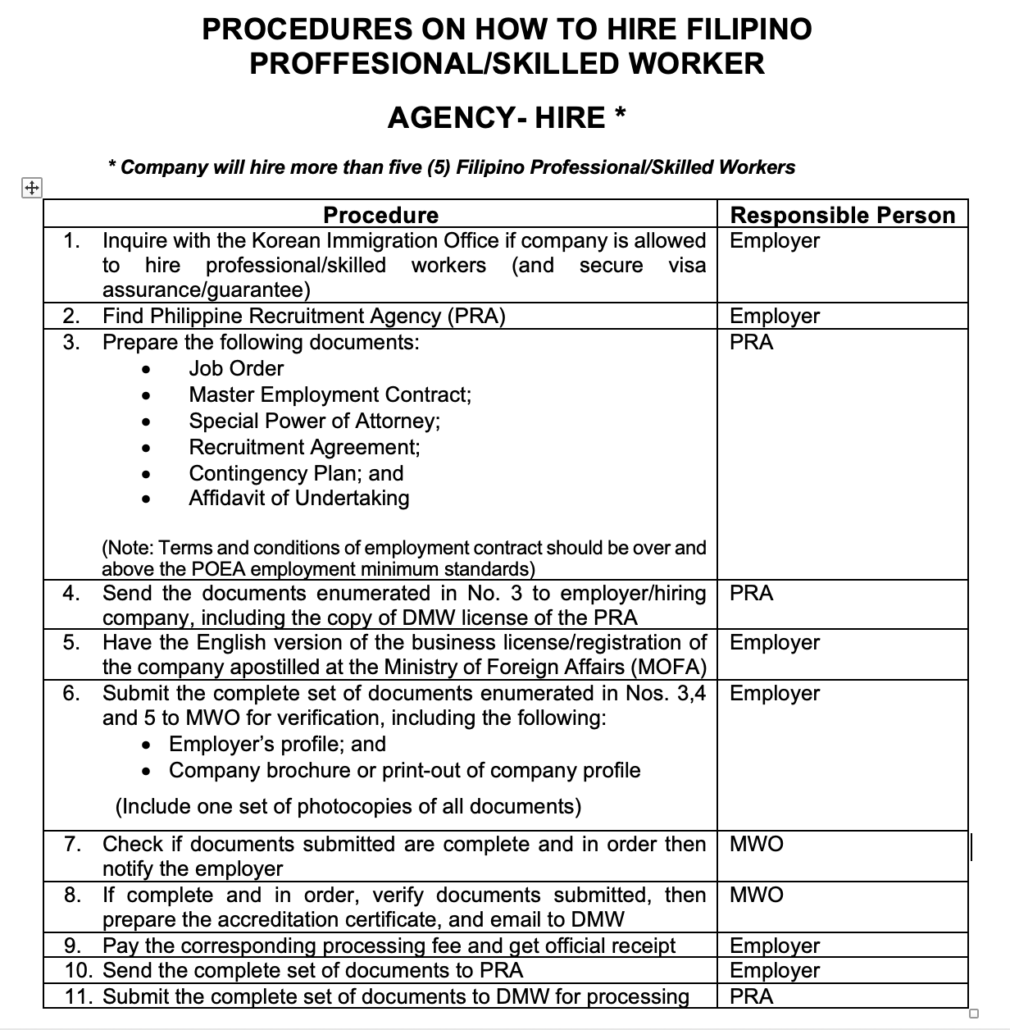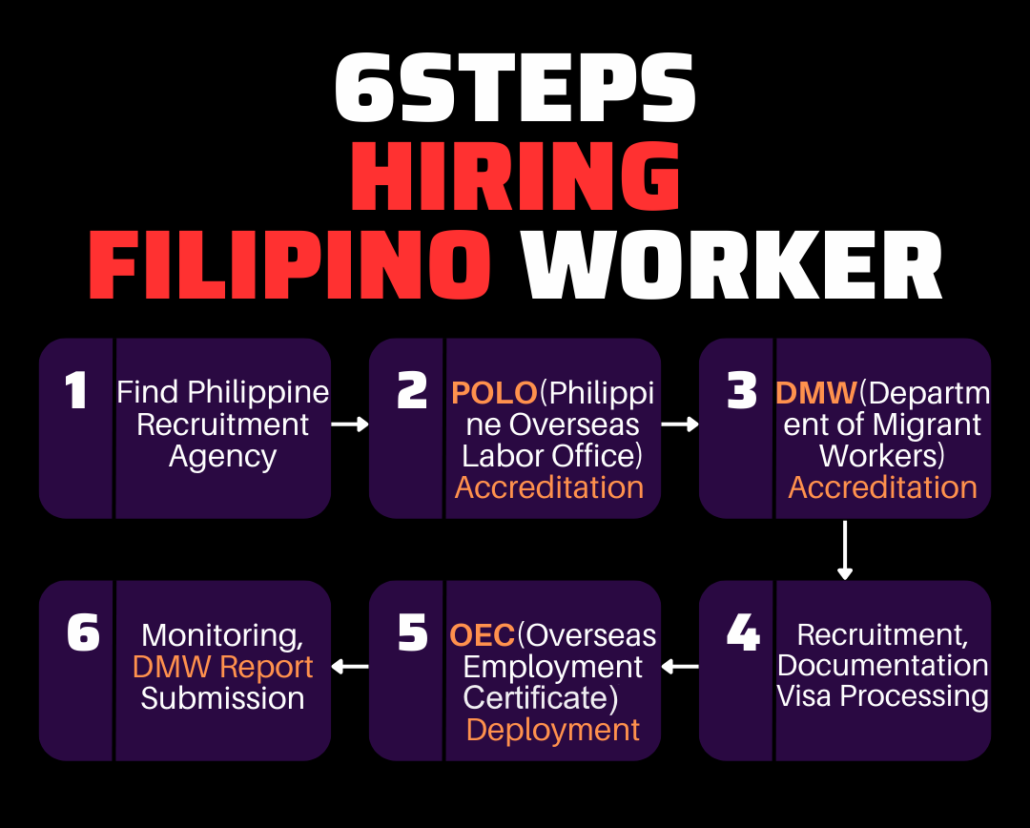Introduction
In today’s interconnected world, businesses are increasingly recognizing the value of a diverse workforce that transcends geographic boundaries. Recruiting international employees not only enhances the talent pool but also brings fresh perspectives and innovative ideas to the table. This comprehensive guide delves into the various aspects of international recruitment, providing insights for business owners, HR managers, regional directors, and CEOs. From understanding the importance of a global workforce to navigating legal complexities and effective onboarding practices, this article covers it all.
Understanding the Importance of Recruiting International Employees
Benefits of a Global Workforce
One of the primary advantages of recruiting international employees is the access to a wider array of skills and expertise. Different countries often have varying educational systems and professional training programs, leading to unique qualifications and experiences that can benefit your organization. This diversity not only enriches the workplace culture but also enhances the overall competency of the team.
Additionally, international employees can bring knowledge of global markets, languages, and cultural insights that are invaluable for businesses looking to expand their reach. They can help navigate the complexities of local markets and consumer behavior, providing a strategic advantage over competitors who may lack such perspectives.
Diversity and Innovation
Embracing a diverse workforce fosters an environment of innovation and creativity. Employees from different cultural backgrounds can collaborate and generate ideas that may not arise in a homogenous group. Research has shown that diverse teams tend to outperform their counterparts in problem-solving and decision-making, as they draw from a broader range of experiences and viewpoints.
Furthermore, companies with diverse workforces often see improved employee satisfaction and retention rates. When employees feel represented and valued, they are more likely to contribute their best work and remain loyal to the organization.
Access to a Broader Talent Pool
The global talent market is vast, and by looking beyond local borders, businesses can find candidates with the specific skills they require. This is particularly advantageous in industries experiencing skill shortages, where local talent availability may be limited. By recruiting internationally, companies can fill critical roles that are otherwise hard to staff, ensuring operational continuity and growth.
Moreover, recruiting international talent can enhance the company’s global presence and adaptability, making it more resilient to economic fluctuations and market changes. A diverse team can respond more effectively to challenges, as it is equipped with varied insights and strategies.
Legal Considerations in International Recruiting
Visa and Immigration Regulations
One of the most critical aspects of recruiting international employees is understanding visa and immigration regulations. Each country has its own set of laws governing the employment of foreign nationals, which can be complex and challenging to navigate. Employers must be diligent in ensuring compliance with these regulations to avoid legal ramifications.
It is essential to stay updated on the visa processes, required documentation, and any changes in immigration policies that could affect hiring practices. Engaging with legal experts in immigration law can help streamline this process and ensure that all hires meet the necessary legal requirements.
Compliance with Labor Laws
In addition to immigration regulations, businesses must also comply with labor laws that vary by country. These laws can include wage regulations, working hours, employee rights, and termination procedures. Understanding these legal frameworks is crucial for maintaining a fair and compliant workplace.
Failure to adhere to local labor laws can result in hefty fines, lawsuits, and reputational damage. Therefore, it is advisable to work closely with local legal counsel or HR experts to ensure that all practices align with the laws governing employment in the specific jurisdictions where employees will be hired.
Understanding Tax Implications
International recruitment also brings substantial tax implications. Employers must understand the tax liabilities that arise when hiring foreign employees, which can include withholding taxes, social security contributions, and potential double taxation issues. Each country has its own tax treaties and regulations that govern the taxation of foreign workers, making it essential for employers to be well-informed.
Consulting with tax professionals who specialize in international employment can help organizations navigate these complexities effectively, ensuring compliance and minimizing financial risks.
Developing an Effective International Recruitment Strategy
Identifying Your Hiring Needs
Before embarking on the international recruitment journey, it is vital to clearly define your hiring needs. This involves assessing the specific skills and attributes required for the positions you are looking to fill. Analyzing the current workforce and identifying gaps in skills or expertise will help guide the recruitment efforts.
Creating a comprehensive job analysis that outlines the roles, responsibilities, and qualifications needed can streamline the recruitment process and ensure a targeted approach. By narrowing down the hiring criteria, companies can focus their efforts on attracting candidates who are the best fit for the organization.
Choosing the Right Recruitment Channels
Once the hiring needs have been identified, the next step is to choose the appropriate recruitment channels. Various platforms can be utilized to reach international candidates, including job boards, social media, and recruitment agencies specializing in global talent acquisition. Each channel has its advantages and should be evaluated based on the target audience and specific recruitment goals.
Employers should also consider leveraging their existing networks and industry connections to find suitable candidates. Building relationships with universities, professional organizations, and industry groups can provide access to a pool of potential talent that may not be actively seeking employment but could be open to new opportunities.
Building an Attractive Employer Brand
In a competitive international job market, establishing a strong employer brand is essential for attracting top talent. Candidates are increasingly looking for organizations that align with their values and offer positive work environments. Companies should actively promote their culture, benefits, and career development opportunities through various channels, including social media, company websites, and online job postings.
Highlighting employee testimonials and showcasing the organization’s commitment to diversity and inclusion can further enhance the employer brand and appeal to international candidates. A robust employer value proposition that clearly communicates what makes the organization a desirable workplace is crucial for attracting high-caliber talent.
Crafting Job Descriptions for a Global Audience
Language and Cultural Sensitivity
When crafting job descriptions for an international audience, it is essential to ensure that the language used is clear, concise, and free of jargon. This approach makes it easier for non-native speakers to understand the requirements and expectations of the role. It is also important to avoid idiomatic expressions that may not translate well across cultures.
Cultural sensitivity plays a significant role in recruitment. Employers should consider the cultural context of the target audience and tailor their messaging accordingly. This may involve adapting the job description to reflect local customs and practices, which can significantly enhance the appeal of the opportunity.
Highlighting Benefits and Opportunities
Job descriptions should not only outline the responsibilities and qualifications required for the role, but they should also emphasize the benefits and opportunities available to potential candidates. This can include details about salary, relocation assistance, work-life balance, and career development programs.
Providing a comprehensive overview of the benefits package and opportunities for advancement can make the position more attractive to international candidates, who may be considering multiple offers. Being transparent about what the organization can offer demonstrates commitment to employee well-being and career growth.
Clear Expectations and Requirements
Clarity is key when outlining expectations and requirements in job descriptions. Clearly stating essential qualifications, preferred skills, and experience levels can help filter out unqualified candidates early in the process. Additionally, outlining the expected outcomes and performance metrics can provide candidates with an understanding of what success looks like in the role.
A well-structured job description that balances detail with clarity increases the likelihood of attracting the right candidates and sets the tone for the interview process.
Attracting Talent from Abroad
Utilizing Social Media and Online Platforms
Social media has revolutionized the way organizations attract talent, and leveraging these platforms can be particularly effective in international recruitment. Platforms like LinkedIn, Facebook, and Twitter offer businesses an opportunity to reach a global audience and showcase their employer brand.
Companies can share engaging content, such as employee stories, company culture highlights, and success stories, to pique the interest of potential candidates. Utilizing targeted ads on these platforms can also help in reaching specific demographics and increasing visibility among international job seekers.
Participating in International Job Fairs
International job fairs present an excellent opportunity for companies looking to attract talent from abroad. These events allow organizations to meet candidates face-to-face, present their employer brand, and discuss job opportunities directly with interested individuals. Preparing for these fairs involves creating engaging materials, such as brochures and presentations, to effectively communicate the organization’s values and opportunities.
Networking at these events can also yield valuable connections with other companies and institutions, further expanding your recruitment reach. Participating in workshops and seminars at job fairs can enhance your organization’s visibility and establish it as a thought leader in the industry.
Networking with Global Recruitment Agencies
Partnering with global recruitment agencies can streamline the process of attracting talent from various countries. These agencies possess the necessary expertise and networks to identify and engage potential candidates effectively. They can assist in navigating the complexities of international recruitment, including compliance with local regulations and cultural nuances.
Additionally, recruitment agencies can help employers save time and resources by managing initial screenings and interviews, allowing internal teams to focus on strategic decision-making and overall workforce planning.
Screening and Interviewing International Candidates
Assessing Skills and Qualifications
When screening international candidates, it is essential to have a robust process in place for assessing skills and qualifications. This may involve using standardized tests or assessments tailored to specific job functions. Understanding the educational background and professional qualifications from different countries is critical, as standards and credentials may vary significantly.
Employers should also consider incorporating simulation exercises or case studies relevant to the role, which can provide valuable insights into a candidate’s problem-solving abilities and practical skills. Engaging with local experts or using resources that provide insights into international qualifications can help ensure an equitable assessment process.
Conducting Remote Interviews
Remote interviews have become a standard practice in the recruitment process, especially for international hires. Utilizing video conferencing tools allows employers to connect with candidates from anywhere in the world. Preparing for remote interviews involves ensuring that the technology is functional and that both parties have a clear understanding of the interview format.
During the interview, it is important to create a comfortable environment for the candidate, as cultural differences may impact communication styles and interview dynamics. Employers should focus on active listening and open-ended questions to encourage dialogue and gather in-depth insights into the candidate’s experiences and motivations.
Cultural Fit and Adaptability
Assessing cultural fit is essential when hiring international employees, as it plays a significant role in long-term engagement and retention. Employers should evaluate candidates based on their adaptability to the company culture and their ability to collaborate with diverse teams.
Incorporating questions related to cultural awareness and previous experiences working in diverse environments during the interview can help gauge a candidate’s fit. Additionally, involving team members in the interview process can provide valuable perspectives on whether the candidate aligns with the organization’s values and culture.
Onboarding International Employees
Creating a Welcoming Environment
Onboarding is a critical phase that determines how new employees perceive their role and the organization. For international hires, creating a welcoming environment is even more important, as they may be adjusting to a new culture and work environment. Providing a comprehensive orientation program that introduces new employees to the company culture, policies, and resources can set the stage for a successful transition.
Involving existing employees in the onboarding process can help foster connections and create a sense of community. Assigning a mentor or buddy to guide new hires through their initial days can alleviate feelings of isolation and enhance their comfort level within the team.
Providing Necessary Resources and Support
International employees may require additional resources and support to help them navigate their new roles effectively. This can include assistance with relocation logistics, access to language training, and information about local customs and practices. Providing a comprehensive onboarding toolkit that includes essential information can empower new hires to acclimate to their new environment.
Regular check-ins during the initial months of employment can also help address any concerns or challenges new employees may face. Creating an open line of communication encourages feedback and demonstrates the organization’s commitment to supporting international hires.
Continuous Integration and Engagement
The onboarding process should not end after the initial few weeks. Continuous integration and engagement are essential for ensuring that international employees feel valued and connected to the organization. Providing opportunities for professional development and networking can help foster growth and engagement.
Regular team-building activities and cultural exchange programs can also promote collaboration and understanding among team members. By actively investing in the integration of international employees, organizations can enhance retention rates and build a cohesive workforce that thrives on diversity.
Conclusion
Recruiting international employees presents numerous opportunities for organizations looking to enhance their talent pool and foster innovation. By understanding the importance of a global workforce, navigating legal considerations, developing effective recruitment strategies, and implementing comprehensive onboarding practices, businesses can successfully attract and retain top talent from around the world. Embracing diversity not only enriches the company culture but also drives growth and success in an increasingly competitive landscape.
















